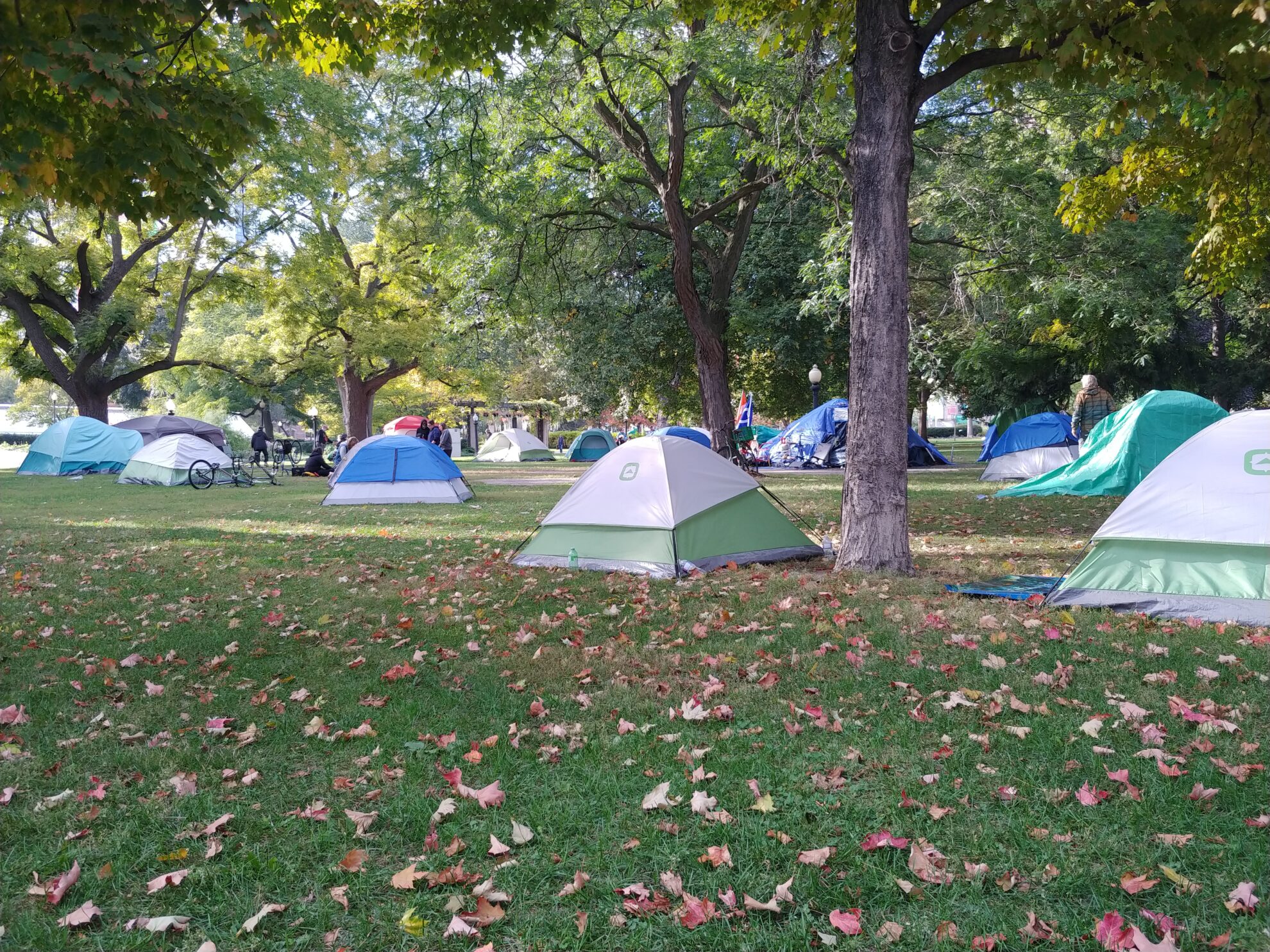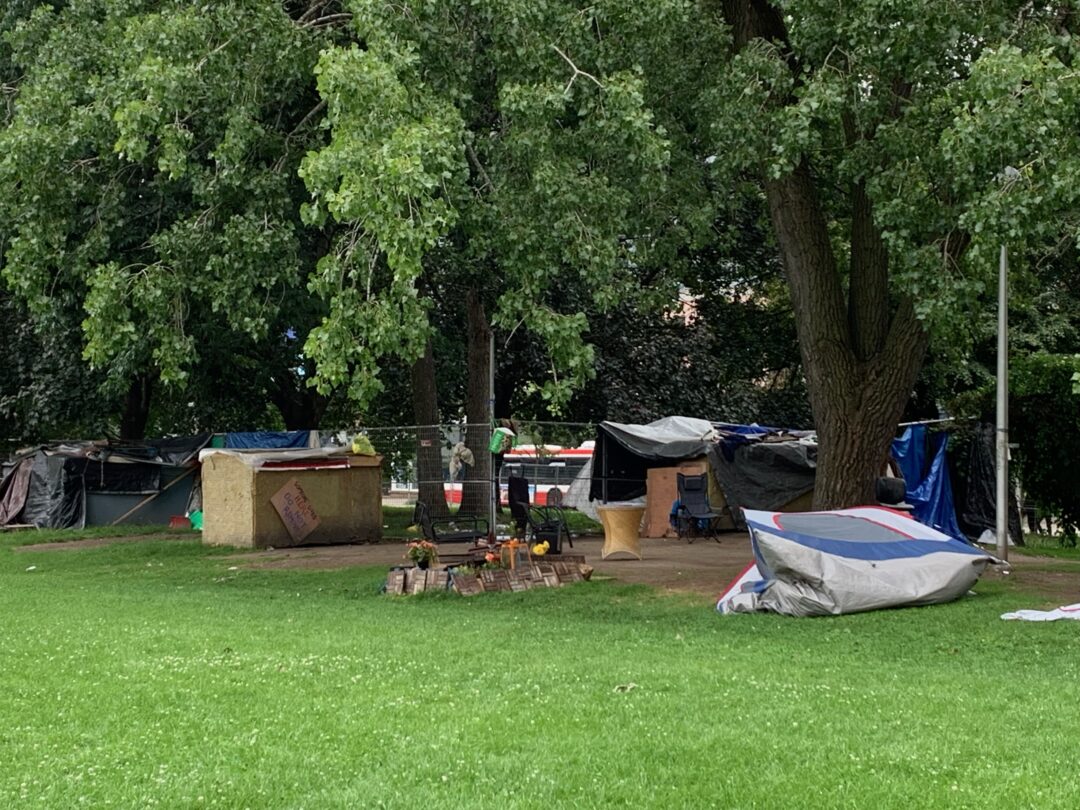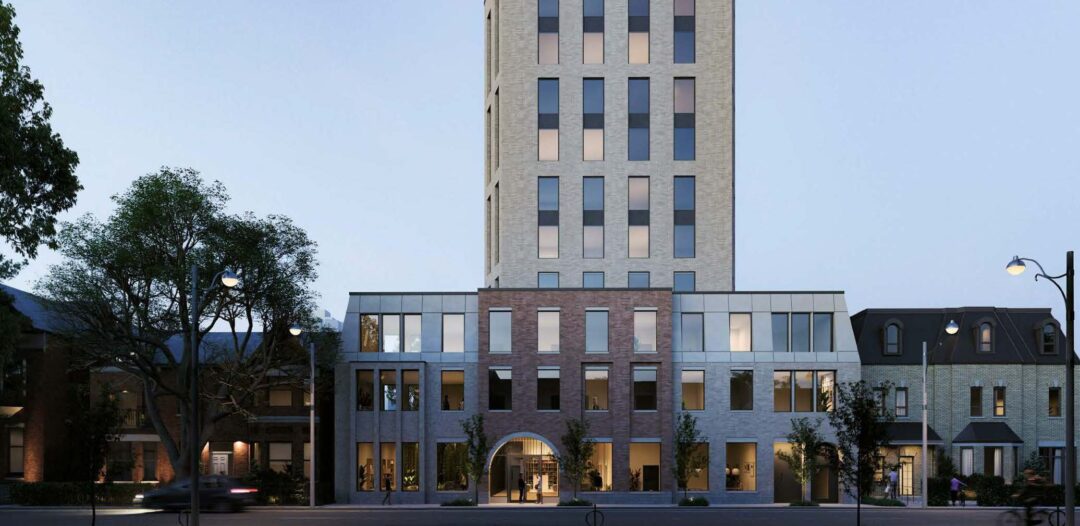By Andre Bermon –
Since the onset of Covid-19 restrictions two years ago, the number of people living outdoors in public spaces has ebbed and flowed. To enable social distancing, the city rented rooms in downtown hotels to temporarily house people outside the shelter system and to incentivize those living in parks to go indoors.
But the situation in Allan Gardens has reached a tipping point. According to the city and nearby residents, the park had more than 30 tents at the end of September. This revived memories of large encampments at Lamport Stadium and Alexandra and Trinity Bellwoods parks in the spring/summer of 2021.
The sense of unease brought on by the encampment makes visitors uncomfortable about using Allan Gardens, especially at night when locals avoid it altogether. Bonfi res, vandalism, open drug dealing, and drug use are recurrent.
“This is a complete failure of the federal, provincial and city governments to address the problem of housing,” John Rider, a nearby resident, told the bridge.
Rider used to frequent Allan Gardens and bring his in laws to enjoy the horticultural Conservatory. But the often sordid state of the park and experiences of being accosted by encampment dwellers has discouraged him.
“I’ve called 311 repeatedly to ask the city to do something. It’s been ongoing for almost two years,” said Rider.
Residents in Cabbagetown South and Winchester Park area have met regularly with the city’s Encampment Office, a body within the Office of Emergency Management. The office’s role, city spokesperson Anthony Toderian said in an email, is to “respond to encampments by taking a human rights approach … which includes facilitating access to safer inside spaces, removal of waste and debris and ensuring City of Toronto shared use spaces are accessible to all.”
According to the city, outreach services have visited Allan Gardens 389 times to “engage with occupants” and made 152 referrals to indoor spaces in 2022. Between April and August, trespass notices were posted nine times when services or indoor accommodations were refused.
Through outreach services and trespass enforcement, occupants were removed by mid-July, only to have encampments return weeks later. The city reserves the right to enforce trespass notices 72 hours after issuing them, but there is currently no deadline for additional enforcement. Daily engagement with Allan Gardens occupants continues.
This hands-off approach is in stark contrast to the heavy-handed tactics witnessed last summer at Trinity Bellwoods and other parks. Police forcibly removed tent occupants, which led to violent clashes and arrests of homeless people and anti-poverty protestors. The public outcry led to an investigation by Toronto Ombudsman, Kwame Addo. The department’s interim report, submitted to City Council in July, called on the city to “increase the fairness, transparency, and accountability” of responses to encampments in public parks.
The report criticizes the Encampment Office for lacking “clear and defined responsibilities” or any public information about the role it plays in the city’s overall encampment strategy. (The City of Toronto website currently has no Encampment Office webpage.) City employees told Ombudsmen investigators that the office has “struggled” to come up with an operational structure that supports and assists people sleeping outdoors while being able to enforce park clearings to maintain them as common recreational spaces.
The city’s current encampment strategy focuses on “prevention” through identification and park monitoring by Municipal Licensing and Standards and Corporate Security staff. Often private security is contracted to assist with deterrence using on-site security and mobile teams. According to the city spokesperson, private security guards are not directly responsible for bylaw enforcement.
Should a new or growing encampment be established, city services and outreach workers engage with occupants to determine their needs and offer aid. It is not known how many times indoor accommodation is offered before trespass notices are issued, nor is it clear which city division is responsible for enforcing the no-camping bylaw.
In an email, Toronto Police corporate communicator Stephanie Sayer says police officers carry out enforcement in partnership with City staff only as a “last resort.”
“We know that encampments include those living with addiction and mental health issues. As police, we are here to ensure everyone is safe and free from harassment or violence, and we will attend the area if we receive calls about criminal activity.”
“Anything to do with homelessness and encampments is led by the city,” the police statement added. Anyone seeking further information is advised to contact them.
“It sounds like [the city] has the responsibility to solve it,” said Cabbagetown South resident Margo MacKay, “but do they have the authority to assign Allan Gardens some priority?”
“I feel they need some teeth with respect to preventing more [encampments] … because more have come in and it encourages others to say, hey, this is a safe place for me to camp.”




